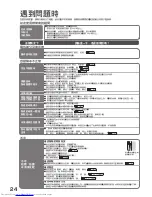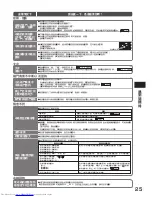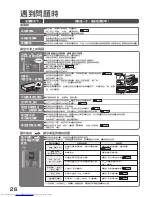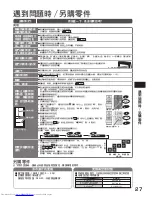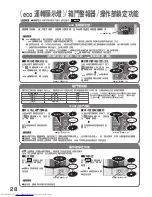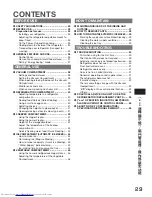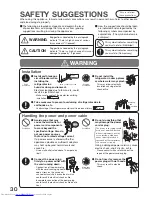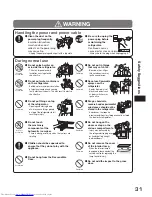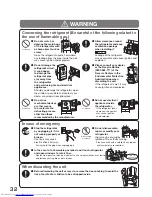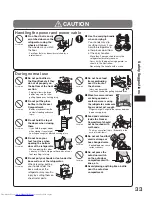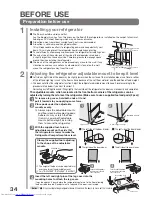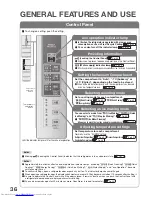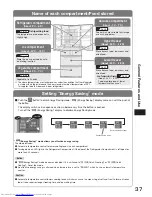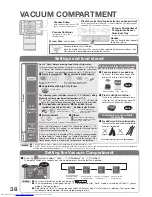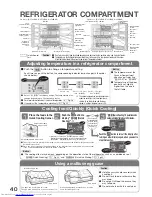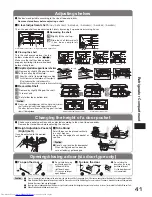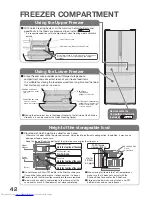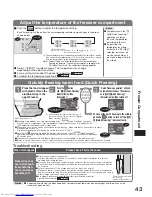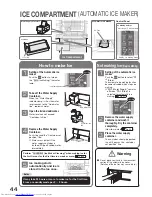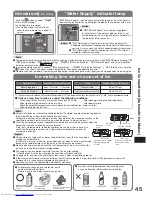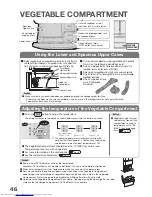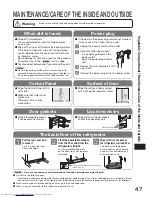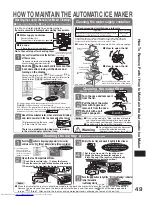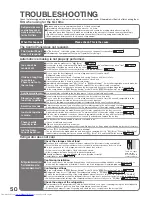
38
Setting the Vacuum Compartment
VACUUM COMPARTMENT
Vitamin Case (on the ceiling inside the Vacuum Compartment)
Antioxidant vitamin is released to inhibit oxidation. (No replacement
required. Do not remove the case.)
Vacuum Pump
(with the pressure sensor, CO
2
sensor and storage sensor)
Aluminum Tray
(housed in the case in the compartment)
Vacuum Compartment
Temperature Sensor
Vacuum Container
(designed to store the
vacuum case)
Handle
Use this handle from beneath
to open or close.
Vacuum Case
(with the door)
Vacuum release valve (in blue)
Raise the handle to unlock it. The vacuum will be released by the vacuum release valve.
Hissing sound is generated when releasing the vacuum.
●
Foods high in water content may freeze if ambient temperature is low.
●
The CO
2
sensor may fail to detect carbon dioxide levels properly due to the freshness and amount of food, and temperature
setting is automatically switched to -1°C that could cause food to freeze.
Caution
Settings and food stored
AUTO
+1˚C
(Chiller)
(About +1°C)
Vacuum
Vacuum OFF
-1˚C
(Subzero)
(About -1°C)
OFF
(About -1°C)
Set to Auto before placing food in the refrigerator.
The Vacuum Compartment performs an automatic switchover to +1˚C (Chiller) or
-1°C (Subzero) upon detection of carbon dioxide. The compartment is automatically
set to -1°C (Subzero) when vegetables are stored and is set to +1˚C (Chiller) if not.
The following foods should be stored at +1
°
C (Chiller) setting.
Manually set the compartment temperature at +1˚C.
※
The Auto setting switches temperature to -1°C, which could
cause the foods to freeze because of a low level of carbon dioxide.
Meat, fish and processed meat/fish should be stored at -1˚C
(Subzero) setting. This setting is also suited for thawing. Foods
high in water content may freeze.
A vacuum function is disabled. This setting is recommended
to store food in sealed bags or sealed containers which
requires caution in storing. Foods high in water content may
freeze because this is a regular ice-temperature compartment.
Vienna sausage, sliced cheese etc.
Beef, pork, poultry, ham,
sausages etc.
Horse mackerel, sardine, saury,
fi sh roe, boiled fi sh paste etc.
Eggplant
Cucumber
Green beans, snow peas, tomatoes, strawberries etc.
Fresh salad
Japanese basil,
oranges, kiwis etc.
Yogurt, cheese
etc.
Tofu, konnyaku, deep-
fried tofu, string konnyaku,
boiled eggs etc.
Vegetables in sealed bags
or airtight containers, coffee
beans, tea leaves etc.
●
Food contained in a sealed bag
The bag may be inflated during storage, which
could result in crushing of other stored food.
●
Vegetable sensitive to low temperature
The surface of the vegetable may deteriorate
due to low temperature.
Okra, asparagus, ginger, and green pepper
●
Plastic airtight container
The lid of the container may become loose
or may not stay in place during storage. Be
careful when you take out the container.
●
Meat, processed meat
●
Dairy products
●
Precut vegetables, small amount of
vegetables, fruits with low CO
2
levels
●
Vegetables with high CO
2
levels
●
Fish, seafood, boiled fi sh paste
●
Others
●
Food which form air
bubbles inside if frozen
Food and container for which care
needs to be taken during storage
Food which are not suitable
for storage
Caution
Caution
■
Push the
button to select Auto , -1˚C (Subzero) or +1˚C (Chiller) .
The display switches in sequence as shown below every time the button is pushed.
●
For more information on the control panel
Pg.36
●
The compartment is designed to be at +1°C immediately after Auto mode is selected until the CO
2
sensor
detects the type of food.
●
Stabilization of the CO
2
sensor requires about 40 minutes when Auto mode is selected. The sensor does
not detect carbon dioxide if food is stored during the time.
Notice
(Factory default setting)
Stored at the Vacuum
Compartment -1°C
Automatic switching of
the temperature range
Stored at the Ice-temperature
Compartment -1
°
C
Stored at the Vacuum
Compa1°C
1 beep
Light ON

